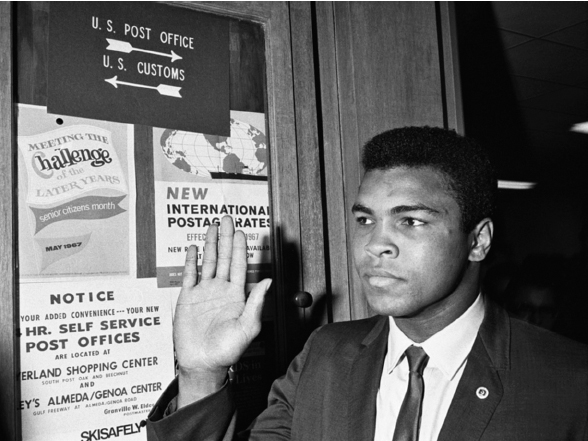America’s History: Printed Page 923
America: A Concise History: Printed Page 837
America’s History: Value Edition: Printed Page 815
The Nationalist Turn

Vietnam and the increasingly radical youth rebellion intersected with the turn toward racial and ethnic nationalism by young African American and Chicano activists. As we saw in Chapter 27, the Black Power and Chicano movements broke with the liberal “rights” politics of an older generation of leaders. These new activists expressed fury at the poverty and white racism that were beyond the reach of civil rights laws; they also saw Vietnam as an unjust war against other people of color.
In this spirit, the Chicano Moratorium Committee organized demonstrations against the war. Chanting “Viva la Raza, Afuera Vietnam” (“Long live the Chicano people, Get out of Vietnam”), 20,000 Mexican Americans marched in Los Angeles in August 1970. At another rally, Cesar Chavez said: “For the poor it is a terrible irony that they should rise out of their misery to do battle against other poor people.” He and other Mexican American activists charged that the draft was biased against the poor — like most wars in history, Vietnam was, in the words of one retired army colonel, “a poor boy’s fight.”
Among African Americans, the Black Panther Party and the National Black Antiwar Antidraft League spoke out against the war. “Black Americans are considered to be the world’s biggest fools,” Eldridge Cleaver of the Black Panther Party wrote in his typically acerbic style, “to go to another country to fight for something they don’t have for themselves.” Muhammad Ali, the most famous boxer in the world, refused his army induction. Sentenced to prison, Ali was eventually acquitted on appeal. But his action cost him his heavyweight title, and for years he was not allowed to box professionally in the United States.